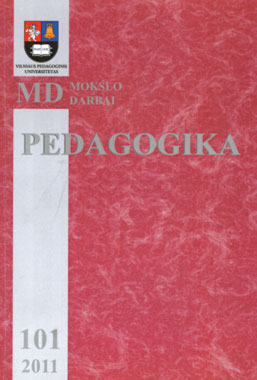Ugdymo turinio planavimas ir įgyvendinimas
The curriculum planning and implementation
Author(s): Renaldas Čiužas, Jolanta NavickienėSubject(s): Education
Published by: Vytauto Didžiojo Universitetas
Keywords: curriculum; curriculum planning, curriculum implementation; paradigm.
Summary/Abstract: The article presents the research, which was performed in the academic year of 2007–2008. A total of 50 schools were randomly selected from the population of general education schools located in Lithuania, and 30 randomly selected teachers and 60 randomly selected pupils from the 9th–12th forms each school were requested to complete questionnaires. Of the 49 schools 1057 teachers and 2628 students returned completed questionnaires representing a 70.5 percent and 87.6 percent response rate. The research took place the academic year of 2007–2008. The results show that only about half of the teachers involve their pupils into curriculum planning and organising. About a half of the teachers and the pupils approve the opinion that possibilities and conditions for pupils to choose a level of the mastering a subject content are created. About 40–50 percent of the teachers assume that in planning and organising curriculum the main factor is not pupils’ abilities, knowledge, interests but standards of curriculum and high assessments of pupils’ knowledge. In analysing the approval of the teachers of different instructional subjects to the planning and organising of curriculum based on the paradigm of impact, statistically significant differences are identified. Having compared the differences of teachers’ answers according to their age, statistically significant differences were not identified. More than half of the sciences, mathematics, information technology and history teachers are focused on the assimilation of knowledge based on curriculum standards and good students grades. Active student involvement in curriculum planning and implementation enhances students’ motivation to learn. External motives – the desire to get good grades and learning in higher education – becomes a subordinate reasons to learn better.
Journal: Pedagogika
- Issue Year: 2011
- Issue No: 101
- Page Range: 37-42
- Page Count: 5
- Language: Lithuanian

